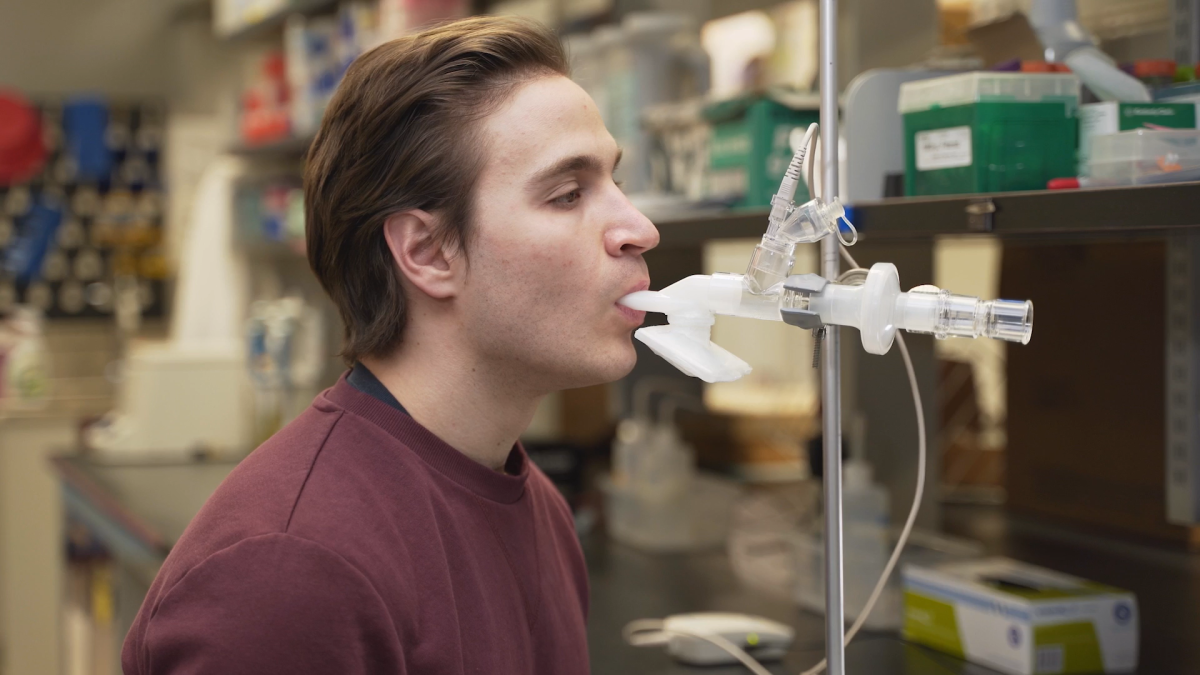Researchers at McMaster University say recent animal studies have proven a pair of inhaled vaccines are effective against the original coronavirus that causes COVID-19 and variants of concern.

In an update through the online journal Cell, Phase 1 clinical trials are underway to evaluate the aerosol vaccines in healthy adults who have already received a pair of mRNA COVID-19 vaccine doses, such as Pfizer-BioNTech or Moderna, according to the university scientists.
Studies to date show the new method, which targets the lungs and upper airways, where respiratory infections typically begin, is effective against the original strain of SARS-CoV-2 and variants of concern.
The model is built around a tuberculosis vaccine established by Zhou Xing, co-lead author at McMaster’s Immunology Research Centre and Department of Medicine.
“What we’ve discovered from many years’ research is that the vaccine delivered into the lung induces all-around protective respiratory mucosal immunity, a property that the injected vaccine is lacking,” Xing said in a release.

Get weekly health news
The aerosol doses, manufactured at the Robert E. Fitzhenry Vector Laboratory at McMaster, are given using a small jet nebulizer researchers say is “very comfortable” to administer.
The latest phase of the trials, approved by Health Canada, will test the safety and immune potency of two vaccines.
Co-lead author Matthew Miller, an associate professor at the DeGroote Institute for Infectious Disease Research, says due to the fact the doses attack more than just mutating spike proteins current vaccines do, the new inhaled vaccines have an advantage with the need for few formula updates since they don’t chase the virus.
“This vaccine might also provide pre-emptive protection against a future pandemic,” Miller said.
“As we saw in 2009 with the swine flu – even when we are able to rapidly make a vaccine for a pandemic virus, it’s already way too late. Millions of people died, even though we were able to make a vaccine in record time.”
The inhaled method targeting the lungs and upper airways achieves maximum protection using smaller doses compared with the current injectable vaccines, suggesting a single batch of vaccine could go 100 times further, say researchers.
“This pandemic has shown us that vaccine supply can be a huge challenge. Demonstrating that this alternative delivery method can significantly extend vaccine supply could be a game-changer, particularly in a pandemic setting,” says Brian Lichty, an associate professor in the Department of Medicine.
The vaccine research is funded through the Canadian Institutes of Health Research (CIHR) COVID-19 Rapid Response grant.













Comments
Want to discuss? Please read our Commenting Policy first.